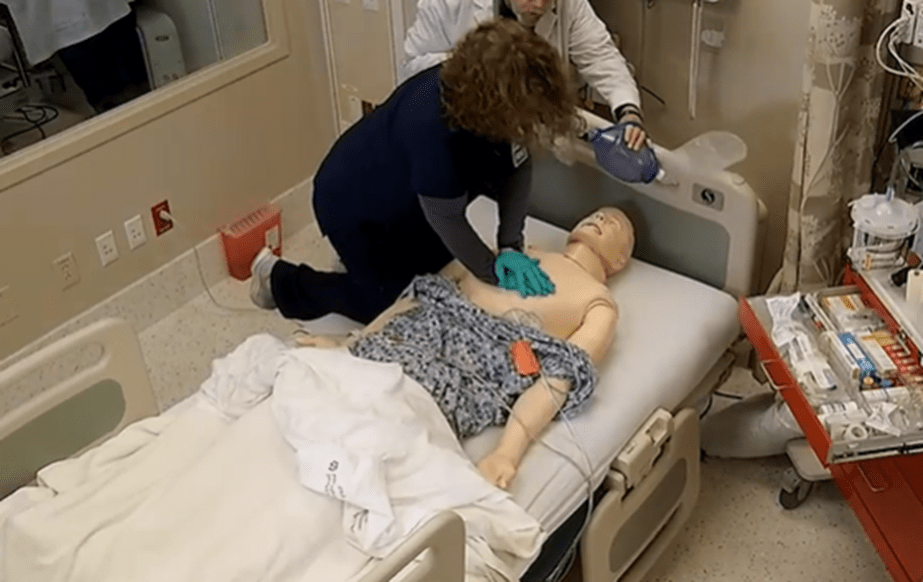You never know what situation you may find yourself in, and VHA health care professionals know this all too well. That’s why the Simulation Learning, Evaluation, Assessment, and Research Network’s (SimLEARN) was created.
One day, a VHA nurse named Megan attended a race that her boyfriend was running, and as she went to greet him at the finish line, she noticed a Sheriff attending to a different runner who wasn’t feeling well. A short time later, the runner went into cardiac arrest and became unresponsive. This is the point at which Megan’s training took over. She immediately went over to the runner, began cardiopulmonary resuscitation (CPR) and applied an automated external defibrillator (AED). The runner was shocked twice by the AED, and Megan continued to administer CPR. After what seemed like an eternity, the runner began to respond, and when EMS arrived, he was sitting up and talking.
SimLEARN Resuscitation Training helps frontline staff respond quickly
While reflecting on the events of that day, Megan referenced a training implemented by SimLEARN’s Resuscitation Education and Innovation portfolio (REdI) that proved instrumental in her life-saving actions. REdI provides a robust resuscitation training portfolio through innovation and collaborative partnerships to improve health care, and their Resuscitation Quality Improvement (RQI) program is a prime example of how simulation-based training can save lives even in the most unforeseen of circumstances. Megan diligently trained with RQI every three months, which she cited as directly contributing to the quality of her CPR efforts on the runner, saving his life.
SimLEARN brings resuscitation quality improvement growth throughout the country
RQI provides low dose, high frequency training on a quarterly basis, and it aligns with the updated American Heart Association (AHA) guidelines to incorporate deliberate practice and mastery learning. It’s also used as booster training sessions for basic and advanced life support courses to improve learning outcomes that aim to positively affect patient outcomes. RQI is the gold standard of training, according to the AHA, and, over the past year, 78% of all eligible VA staff adopted the training with 58 VA medical facilities obtaining a 100% staff adoption rate. At the end of 2022, around 250,000 VA staff members had undergone training in RQI.
While RQI is designed for clinical learning, the morning of Megan’s boyfriend’s race demonstrates that emergency situations that require swift resuscitation actions may occur at any moment. In fact, only a week after SimLEARN heard Megan’s story, another nurse, Patricia, recounted how her RQI training guided her actions as she had to perform CPR on a child at her daughter’s school dance. Patricia also used the AED and performed compressions until EMS arrived. She said, “It was crazy and terrifying, but my training took over.” Thankfully, the little girl survived and is doing well.
SimLEARN’s REdI portfolio, first and foremost, gives frontline staff the lifesaving tools to save Veteran lives every day; however, as we’ve seen here, frontline staff have taken it upon themselves to let their training take over, becoming first responders to those in dire need of care.
Topics in this story
More Stories
The Medical Foster Home program offers Veterans an alternative to nursing homes.
Watch the Under Secretary for Health and a panel of experts discuss VA Health Connect tele-emergency care.
The 2024 National Veteran Suicide Prevention Annual Report provides the foundation for VA’s suicide prevention programs and initiatives.








Great article. So nice to read that the training here at VA is really being used and saving lives. Sharing this information is valuable to those who go through the training, they now can see that it really works. Thank you Aaron for sharing.